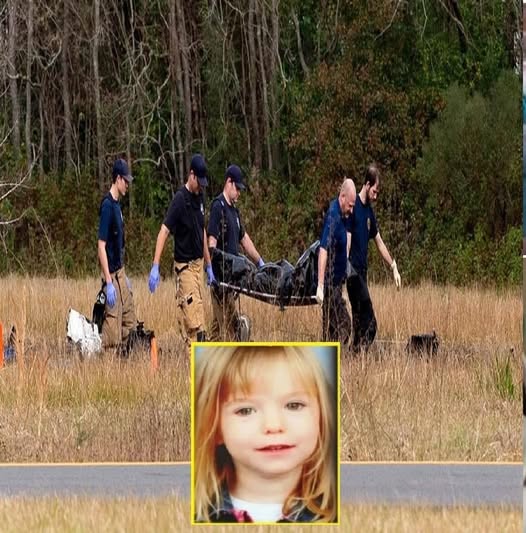The deaths of three young sisters — Paityn, 9, Evelyn, 8, and Olivia, 5 — have shattered a small Washington community and left the nation grappling with a haunting question: how could this have been prevented? Their mother, Whitney Decker, has come forward with a story that’s as heartbreaking as it is infuriating — a story about warning signs ignored, systems that failed, and a desperate mother who tried to save her children before it was too late.
The tragedy unfolded deep in the forests of Leavenworth, Washington, where investigators discovered the unimaginable at a remote campsite. The three sisters were found lifeless — bound, suffocated, and left with plastic bags over their heads. The suspect: their father, Travis Decker, a former military serviceman with advanced survival skills and, according to his ex-wife, a long battle with mental illness. He remains on the run and is considered armed and dangerous.
For Whitney, the nightmare didn’t begin in the woods. It began weeks earlier — with fear, intuition, and unanswered calls for help.
She had long been worried about Travis’s state of mind. Once a dedicated soldier and father, he had returned from service deeply changed. He struggled with post-traumatic stress disorder (PTSD) and had been diagnosed with borderline personality disorder, according to Whitney’s attorney, Arianna Cozart. Whitney said she had seen his behavior become more erratic over time — angry outbursts, paranoia, emotional instability. She did everything she could to raise red flags before tragedy struck.
“He was unraveling,” Whitney said. “I told them something bad was going to happen. I just didn’t know it would be this bad.”
When Travis failed to return the girls after a scheduled visitation, Whitney’s panic was immediate. She called the police, explaining that her ex-husband was mentally unstable and potentially dangerous. She begged for an Amber Alert to be issued. But authorities told her the situation “didn’t meet the criteria.”
That decision may have cost three lives.
Amber Alerts are designed to mobilize the public quickly in cases of child abduction or imminent danger. But they can only be issued if strict requirements are met — often including confirmed evidence of abduction, a detailed description of the suspect or vehicle, and proof that the child is in immediate danger. In the Decker case, investigators claimed they didn’t yet have enough information.
Whitney disagreed. She knew her children were in danger. She had told them exactly that — but her warnings, like so many before, were logged and dismissed as “custody concerns.”
Her attorney later revealed that Whitney had made multiple prior reports to law enforcement, urging them to take Travis’s mental health seriously. She described violent episodes, erratic behavior, and threats he had made during their custody disputes. “There were signs,” Cozart said. “There were multiple opportunities to intervene. None of them were taken.”
Two days later, police found the girls.
The discovery was grim and left seasoned investigators shaken. The campsite was isolated — a place Travis knew well from his military background. Evidence suggested premeditation. Authorities believe he may have planned the killings and his subsequent disappearance, possibly surviving off-grid using his training.
As the manhunt continues, the tragedy has reignited a painful national conversation about systemic failure — particularly how the justice system handles domestic disputes involving mental illness.
Experts say the case exposes glaring weaknesses in how authorities assess and respond to warnings from parents. In many states, the bar for issuing an Amber Alert remains high — often too high to act preemptively. Custody-related disputes, even when one parent reports serious danger, are often categorized as “civil matters,” leaving police with limited power until violence occurs.
“Whitney did everything right,” Cozart said. “She called. She documented. She warned them. And still, nothing happened.”
This case is far from isolated. Across the country, similar tragedies have followed the same pattern: a parent raises alarms, authorities hesitate, and the outcome turns fatal. Advocates argue that the system treats mental health and family disputes as separate issues when, in reality, they often overlap in dangerous ways.
The Decker case has since become a rallying cry for reform. Online, thousands have joined the movement using the hashtag #JusticeForTheDeckerGirls, demanding changes to Amber Alert criteria, better mental health intervention during custody battles, and improved coordination between family courts and law enforcement.
Public outrage is directed not only at the suspect but also at the bureaucratic rigidity that may have contributed to the tragedy. “We keep saying, ‘lessons will be learned,’” one commenter wrote. “But children keep dying before the lessons ever turn into action.”
Mental health professionals point out that Travis’s profile — a veteran with untreated PTSD and personality instability — is tragically common. The U.S. Department of Veterans Affairs estimates that around 20% of veterans who served in recent conflicts experience PTSD. Without consistent treatment or monitoring, symptoms can manifest as paranoia, aggression, or detachment — behaviors that can escalate under stress, especially in family conflict.
For Whitney, these statistics mean nothing now. She’s left with three empty bedrooms and a lifetime of grief. “They were my world,” she said quietly during a recent interview. “I tried to save them. No one listened.”
Cozart, who now represents Whitney in pursuing legal accountability, said the case should prompt immediate policy change. “If a mother tells authorities her children are in danger, the default should be to act — not to wait,” she said.
In response to public outrage, Washington lawmakers have begun reviewing the state’s criteria for Amber Alerts, considering amendments that would allow for more flexibility when credible mental health or domestic violence risks are reported. Advocates are also calling for greater investment in crisis response teams trained to handle cases involving mental illness and family disputes.
Meanwhile, the search for Travis Decker continues. Federal and state agencies are involved, and authorities warn he may be using his military experience to avoid detection. They’ve urged the public not to approach him if spotted and to report any information immediately.
At vigils across Washington, candles have been lit for Paityn, Evelyn, and Olivia. Photos of three smiling sisters—gap-toothed grins, braids, and birthday dresses—have circulated online, turning their faces into symbols of what’s at stake when warnings go ignored.
Community members describe Whitney as a devoted mother who never stopped fighting for her daughters’ safety. “She was their protector,” said one neighbor. “She just needed someone to listen before it was too late.”
In the aftermath, questions continue to hang heavy: How many warnings does it take to be believed? How many systems have to fail before we fix them?
Three little girls are gone. A mother’s pleas were dismissed. A nation is once again left confronting the cost of inaction.
As investigations continue, Whitney’s voice—raw with loss but steady with resolve—echoes through the noise: “If someone tells you they’re scared for their children, don’t wait. Don’t ask for proof. Just listen.”
Because sometimes, listening is the only thing that can save a life.




